
Current Events :















New Delhi, January 15
The Army is maintaining a “strong defence posture” along the Line of Actual Control (LAC), and is ready to deal with any contingency, Chief of Army Staff General Manoj Pande said on Sunday.
Operational readiness
We are planning to convert battle contingents into integrated battle groups, which will contribute significantly in our future wars. Gen Manoj Pande, Army Chief
He was addressing the annual Army Day parade at Bengaluru. It is for the first time that the parade is being conducted outside the Capital. General Pande said the situation along the northern border areas (with China) was normal and steps had been taken to maintain peace through established protocol and existing mechanism.
Speaking about the year gone by, he said the Army firmly faced challenges and ensured security at the borders. “Steps have been taken to improve capability development, force restructuring and training. We have also strengthened the preparations for future wars,” General Pande added. Referring to the situation along the western border, the Army Chief said the ceasefire continued at the LoC and there had been a substantial reduction in violations. “However, the terror infrastructure still remains on the other side of the border…. Our counter-insurgency mechanism is effectively foiling the infiltration bid from Pakistan,” he added. Pointing to the attempts to smuggle arms and drugs into Jammu and Punjab border regions using drones, General Pande said counter-drone jammers were being used against such activities. The Army with other security forces was committed to foiling these attempts, he told the gathering.
He said the local population in J&K had rejected violence and enthusiastically participated in all initiatives of the government. “Our focus is also on building goodwill and carrying out developmental projects through which we can bring the local population into the mainstream. As part of it, the youth are being given opportunities to fulfill their dreams in the fields of their choice and sports,” General Pande said. Alluding to the security situation in the North-East, he said there was an improvement in the situation.
The Army has played an important role in making insurgents leave the path of violence, he said.
In line with PM’s call for ‘Atma-Nirbhar Bharat’, the Army Chief too laid emphasis on indigenisation. General Pande said India was standing on the threshold of a new era where one could see the country’s increasing dominance at international forums.

New Delhi, January 15
With rapid changes in security challenges, the armed forces need to be “future-ready”, said Defence Minister Rajnath Singh while speaking at the Army Day parade in Bengaluru today.
“Security challenges are evolving with time, the pace of change is rapid. Drones, underwater drones and weapons powered by artificial intelligence are being used today. It is a technology-intensive era,” he said.
“Armed forces need to develop capabilities and implement lessons learnt from the ever-evolving global security scenario, especially at a time of the Russia-Ukraine conflict. Militaries are working on new ideas, technologies and their organisational structure,” Singh said, adding that the armed forces need to work on strategies, tactics and policies keeping the future challenges in mind.
He described the ability of the Indian military to adapt and reinvent itself with changing times as its greatest strength and voiced the government’s resolve to continue strengthening national security by equipping the military with indigenous state-of-the-art weapons and technologies.
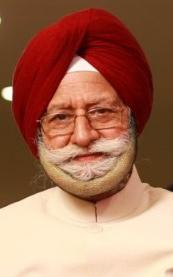
Archaeologists confirm human habitation in Afghanistan from as far back as 50,000 BC. The indigenous people were small farmers and herdsmen, as they are today. They were grouped into tribes with small local kingdoms, rising and falling through the ages. It is believed that the region had early trade contacts with Mesopotamia. Before the arrival of Islam in the 7th century, there were a number of religions practiced in ancient Afghanistan, including Zoroastrianism, Surya worship, Hinduism and Buddhism.
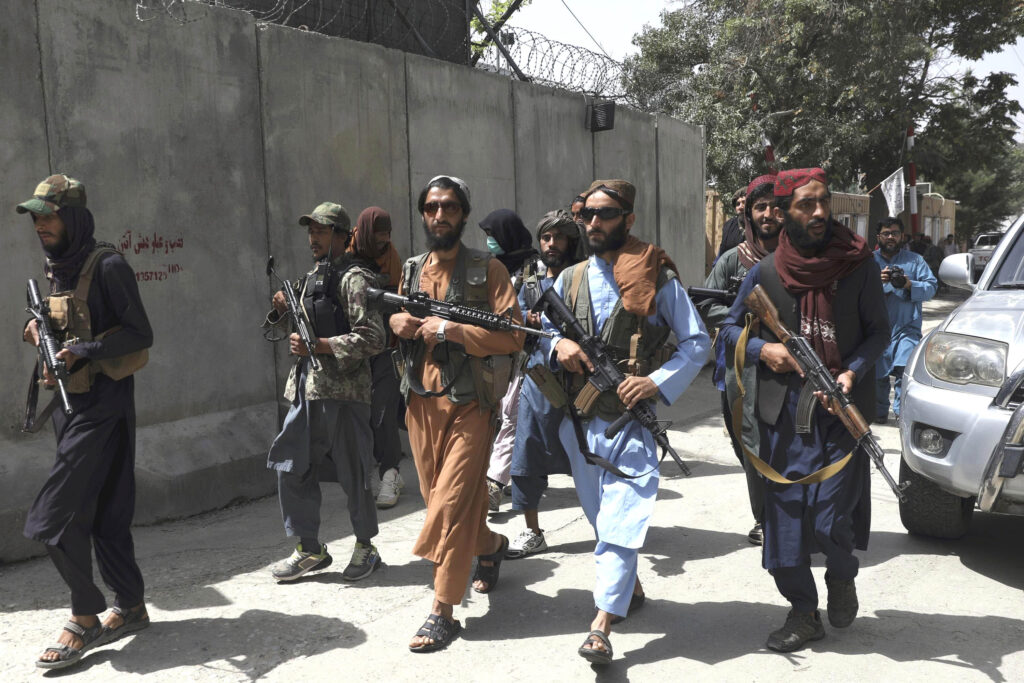
Afghanistan is a landlocked mountainous country at the cross roads of central and South Asia. It has borders with Pakistan, Iran, Tajikistan, Turkmenistan and Uzbekistan. In the middle ages and upto the 18th century, the region was known as Khorasan. The present day cities of Balkh,Herat, Ghazniand Kabul comprise the Khorasan area.
Afghanistan is a notoriously difficult country to govern.Empire after empire, nation after nation have failed to pacify what is today the territory of Afghanistan. It is therefore, called the ‘Graveyard of Empires’.
Genghis Khan, in his bid to expand the Mongol Empire towards centralAsia and the middle east, invaded Afghanistan in 1219—21 but could not hold it for long, as he was defeated by the forces of Jalal-ad-Din at Parwan. Britain, in order to protect its Indian Colony from any invasion by the Russian Czars, played the ‘Big Game’ in the area in order to check Russian influence in central Asia and the middle east. There were three Anglo- Afghan wars in the area but in the first Anglo-Afghan war which was fought in 1839-42, all 4500 British troops and 12,000 civilians were slaughtered by the afghan tribal warlords.
In 1979, the Soviet Union decided to prop-up a communist regime in this strategically located central Asian country. Soviet troops fought for over nine years to have a grip on the country but, had to abandon their adventure, after having lost 15000 of their soldiers and killing two million afghan people.
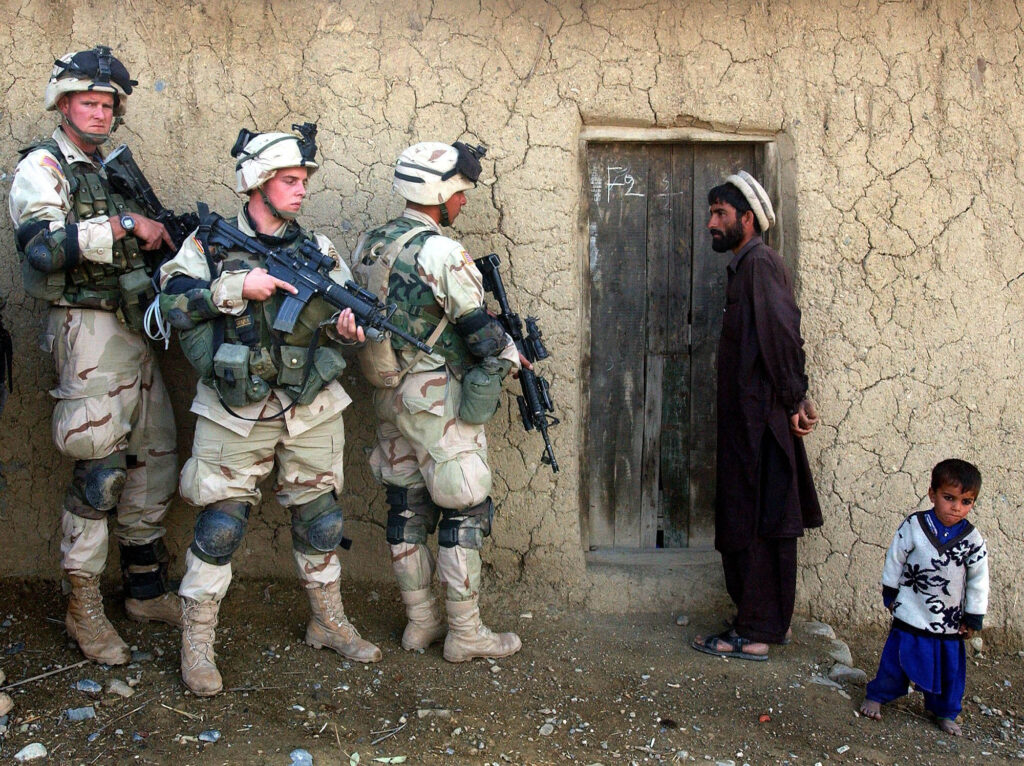
But this victory cannot be wholly attributed to the superiority of afghan mujahideen as NATO (North Atlantic Treaty Organisation) forces under the United States, were providing complete war material, finance and intelligence through covert operations and for this, CIA (Central Intelligence Agency) of US and ISI (Inter-Services Intelligence) of Pakistan, were hand in glove with each other. At the end of withdrawal of soviet forces, no doubt, the visible victory went to Afghanistan but, in actual fact it was the covert victory of America over the Soviet Union which was its cold war enemy after WW II.
Now Afghanistan was free to be taken over by the Taliban which was waiting in the wings in Pakistan.The withdrawal of soviet forces also saw, a huge availability of military hardware left by the US andthe Soviets which became the legitimate property of Taliban when it took over the country in 1996. Taliban, with its medieval ways of governance, created terror in the minds of common people with public lashings and public hangings. Their barbaric rule ended when they allowed Al Qaeda leader, OSAMA BIN LADEN to use the afghan soil to launch the 9/11 attacks on the Twin Towers in New Yorkand the US response thereto. In Oct, 2001 the US war in Afghanistan started and continued for 20 years.In these 20 years, USforces faced continuous guerrilla attacks from the mujahideens. At the end, the American public got fed up with this war and receiving body bags for such a long period of time. Itmade them sick which resulted in a hasty and ignominious withdrawalof US troops from afghan soil on 30th Aug, 2021.Their achievements are there to seefor the whole world!
The Taliban were virtually handed over the complete afghan territory on aplatter and the whole world condemned this action. The Taliban had occupied Afghanistan on the 15th of Aug, 2021.
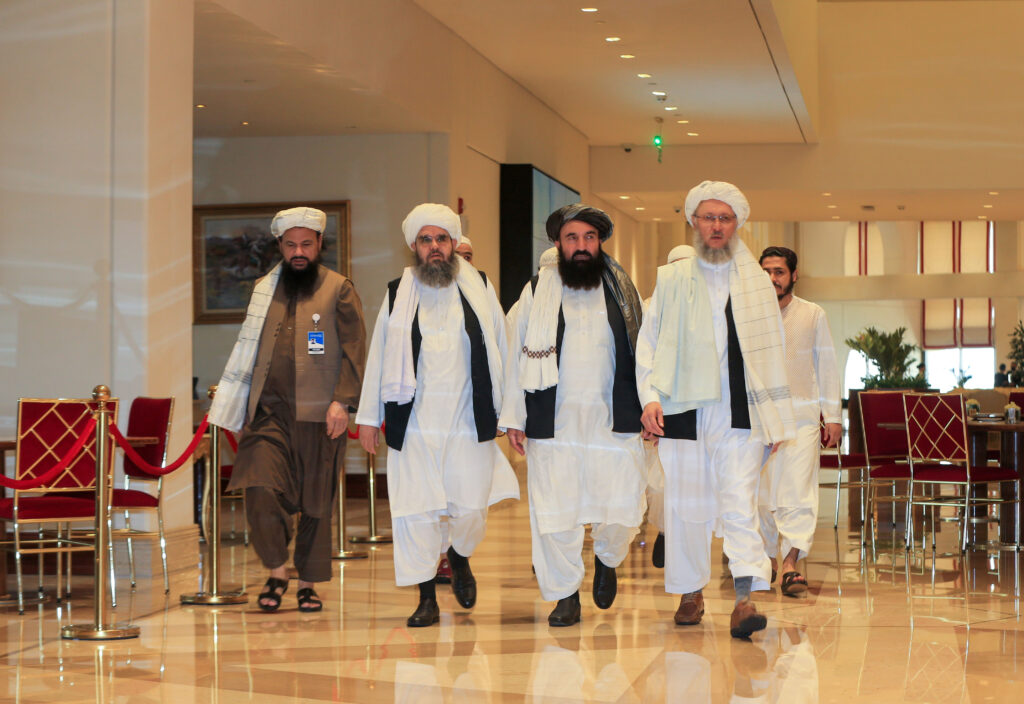
But before the departure of US forces from afghan soil, the US signed an agreement with Taliban at Doha in Qatar that, once the US troops leave afghan soil, the Taliban would rule the country by forming an inclusive government in which the representation of all ethnic groups would be ensured and democracy would prevail. Women too would be given due representation in governance.Women education would not be stopped and justice would be delivered by keeping in mind the human rights principles. And in case, the future government fails to abide by the Agreement, it would not be recognized and therefore, no financial help would be forthcoming from the international financial institutions for the reconstruction and economic development of thecountry. It was also mentioned that the AfghanCentral Bank funds to the tune of nine billion dollars would be blocked by the US and not made available for the development of Afghanistan.
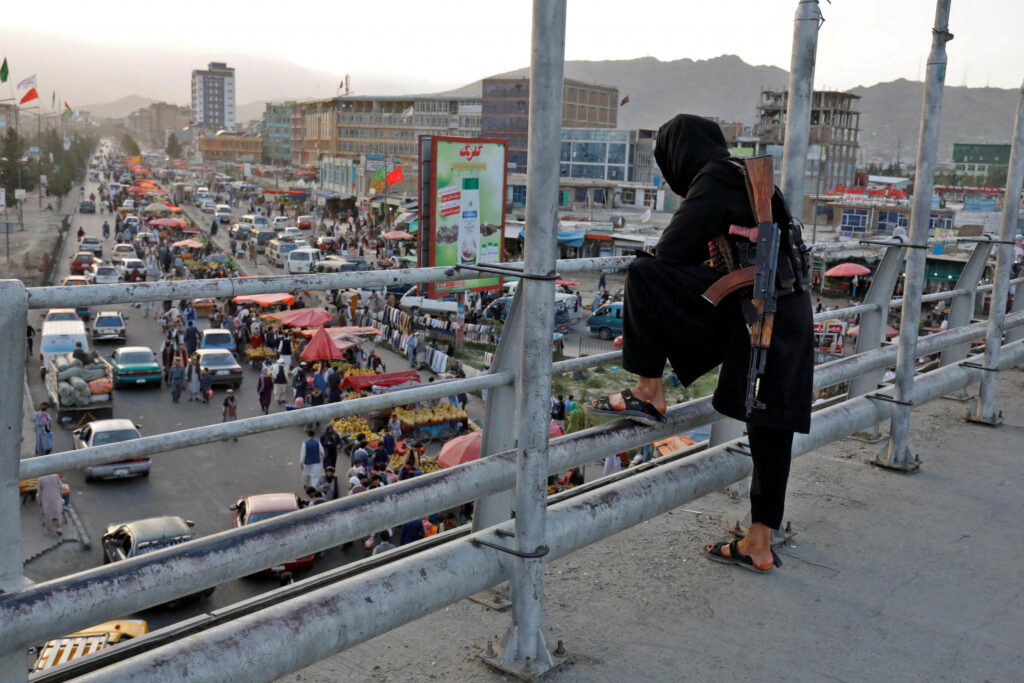
The population of Afghanistan is around 40 million. The nation is composed of a multi-ethnic and multilingual society. Ethnic groups in the country include Pashtuns, Tajiks, Hazaras, Uzbeks and others. Afghanistan has two official languages; Pashto and Dari. Pashto is spoken in most regions of Afghanistan. The country is an Islamic Republic and 90% of the population follows Sunni Islam, the rest are Shia muslims.
Pashtun aspirations to rule this country with Sharia laws, have not allowed the country to progress in tune with the new world order. Its leaders, or to put it more appropriately, its warlords, never allowed scientific education to its people which kept the whole country devoid of holistic progress. This was one of the major reasons that outside powers came to Afghanistan and used its people for their ulterior motives and ultimately leaving the country in lurch. A large number of countries in the Arab world impose Sharia laws but they do not hinder the scientific outlook and progress of their people. The problem with the autocratic leaders of this country is that, they listen to the Islamic clerics blindly and impose ultra-austere interpretation of Islamthus creating a near theocratic state in which, barbaric punishments are handed down like public lashings and public hangings.
The imposition of ultra-austere interpretation of Islam has not helped the country and its people. A country that debars half of its population to stay away and not be part of the progress and development,can only expect to remainin the lower rung of countries on a global scale. What a shame to see that in the 21stcentury, a government issues a diktat that the role of women is only, to bear and deliver children as also to look after affairs within the four walls of the house.
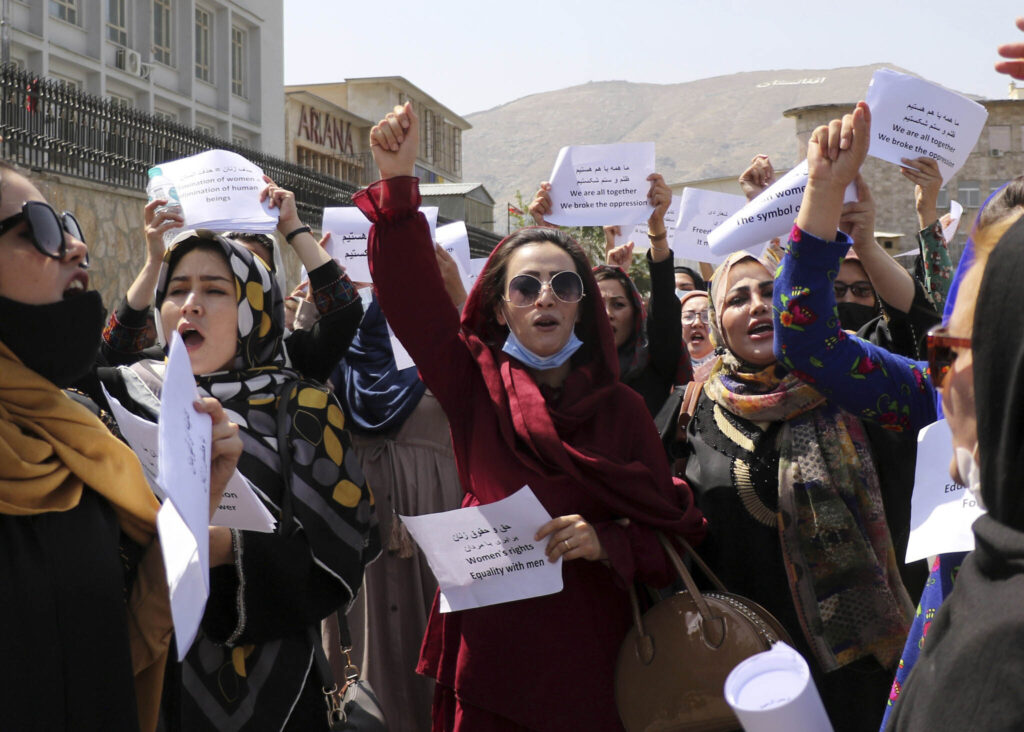
The women in the country are forbidden to seek education especially higher education; cannot run a business unless always accompanied by a close male relative such as the father, husband or brother. They cannot work in an office, be it government or private. Whenever, they step out of their home/premises, even for a small routine errand, they must be accompanied by a male member of the family. All females except small children, must cover themselves withblack hijab. Is there a difference in the life of a prisoner and an afghan woman? This dumb world won’t be able to respond to this question effectively!
It isnoteworthy that nowhere in the holy book of Quran Sharif, hijab is strictly defined, though it is firmly rooted in Islamic tradition.It is often a personal and cultural concept.
Many muslim majority countries like Kosovo, Azerbaijan, Tunisia and Turkey have made it illegal to wear hijab in public, schools, universities or government buildings while Egypt and Syria have banned the use of face veils in universities. A similar approach by the present afghan government is likely to help.
What Next?
It is very clear that the West wants the Taliban to run the country in a transparentmanner and not be an impediment to the progress made in the last two decades in terms of education including the women education, societal harmony and fair legal system.
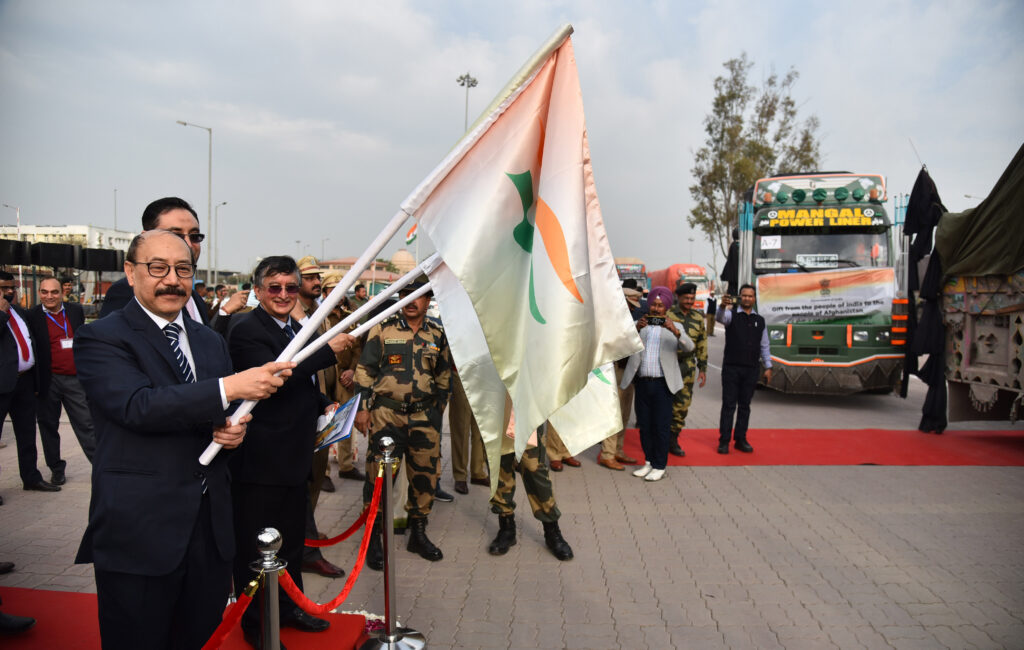
Russia is on the same page as India that Afghanistan being an Asiancountry, the finding of solution to its problems should be left to the Asian countries bordering it or situated in its vicinity.India is a very important country in its vicinity and it can’t afford to ignore Taliban in order to safeguard against potential terrorist attacks by anti-India forces from the afghan soil. India also can’t ignore very ancient historic and cultural ties with this country. Although India does not recognize the Taliban Government yet it has been providing medical assistance to the Indra Gandhi Children’s Hospital, Kabul, Afghanistan. India has been sending humanitarian aid in terms of wheat and medical supplies. This contact must continue and at a later stage both the countries would find ways and means to establish a sound economic relationship.
In my opinion the world powers have a collective responsibility towards the situation in Afghanistan; its resolution will be time consuming and challenging. Foreign powers should not rush to fill the vacuum with ulterior motives, due to the geostrategic importance of Afghanistan.
The world body and more importantly the US has to catch the bull by its horns and make sincere efforts to bring the governance of Afghanistan in tune with the present world order. The US is morally responsible to discipline the Taliban, not with the barrel of a gun but by showing compassion for the 40 million Afghans, most of whom were not responsible for the attack on twin towers.
One way forward is by asking the Taliban to allow establishment of a large number of NGOs who could be working for alleviation of poverty,medical assistance, assistance for the handicapped, assistance and medical advice to the pregnant women, running de-addiction centres,adult education and encouraging others to acquire education, helping people living in far flung areas to maintain personal documentation and land records, providing legal assistance to poor people, vocational training in industry, educating people to enhance the agricultural productivity and finally to wean away people from growing poppy crops.
These NGOs should be funded for a period of 20 years from the nine billion dollars blocked by the US and everyone knows that these funds legitimately belong to the people of Afghanistan. Every year, 500 million dollars should be allocated directly to these NGOs and since in the last one and a half year, Taliban has not kept its promise on most points mentioned in the Doha Agreement, the funds cannot and must not be routed through the government agencies. In this way Taliban government can belured into accepting the establishmentof these NGOs.With this, their constant harping about the release of the blocked funds wouldalso stop.
In the end, I would like to advise the law makers of America to start thinking out of the box-if they are sincere to bring reforms in Afghanistan. The President of the United States of America needs to sit back and deliberate; did a super power of 280 millionpeople (in the year 2001) require a 20 years of bombing campaign to avenge the twin towers attack on an already beleaguered country of 20 million people and send them back to the medieval ages?
Brigadier (retd.) Raj Bhutani : The author is a freelance writer, a war veteran of 1971 war and retired Brigadier with 32 years of service in the Indian Army

Chandigarh, January 15
To commemorate Army Day, a wreath-laying ceremony was held at the Veer Smriti war memorial in Chandimandir today.
The Chief of Staff, Western Command, Lt Gen Vijay B Nair, paid floral tributes to martyrs at the memorial on behalf of all ranks of the Command.
On this day, the Western Command reiterated its commitment and firm resolve to ensure the safety, security and sanctity of the nation and its borders.
Army Day is marked on January 15 every year. It was on this day in 1948 that the first Indian officer, Field Marshal KM Carriappa, took over as the Commander-in-Chief from the British.

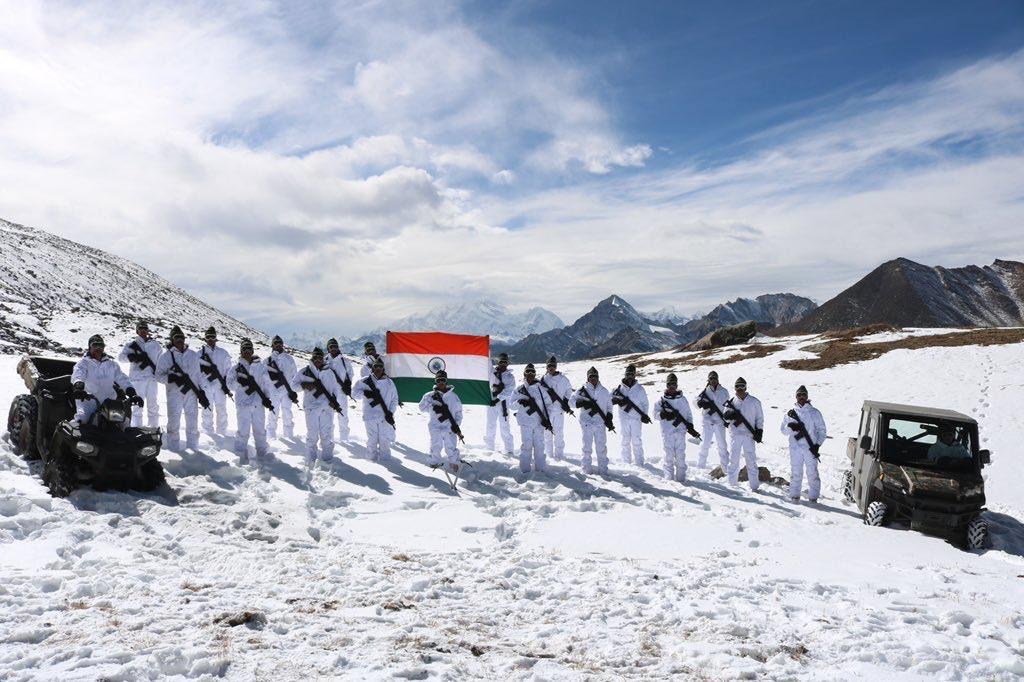
New Delhi, January 15
President Droupadi Murmu on Sunday extended greetings on Army Day, and said soldiers have always pushed the frontiers of valour besides acting as saviours in times of calamities.
“I salute all brave soldiers of Indian Army and their families on this occasion,” she said.


Army Day is observed on January 15 to mark Field Marshall K M Cariappa taking over as the first Indian Commander-in-Chief of the Indian Army, replacing his British predecessor in 1949.470602&sessionId=153d91d22d2dad7fc5cec7553a6043e3ea6b3c48&siteScreenName=%26via%3Dthetribunechd&theme=light&widgetsVersion=2b959255e8896%3A1673658205745&width=550px
“On Army Day, let us recall countless stories of Indian Army soldiers’ sacrifices! They have always pushed the frontiers of valour and courage, and also acted as saviours in times of calamities. I salute all brave soldiers of Indian Army and their families on this occasion,” Murmu tweeted.
Prime Minister Narendra Modi also lauded the Indian Army, saying the soldiers have always kept our nation safe and are widely admired for their service during times of crisis.
“On Army Day, I convey my best wishes to all army personnel, veterans and their families. Every Indian is proud of our Army and will always be grateful to our soldiers,” Prime Minister Modi said in a tweet.
“They have always kept our nation safe and are widely admired for their service during times of crisis,” he said.
Congress president Mallikarjun Kharge hailed soldiers and veterans, and said the people are forever indebted to them for their unflinching courage, utmost dedication and selfless sacrifice.
In a tweet, Kharge said, “Salutations to our brave soldiers, veterans, ex-servicemen and gratitude to their families, on the occasion of Indian Army Day.” “We are forever indebted to your unflinching courage, utmost dedication and selfless sacrifice,” the Congress president said.
Former Congress president Rahul Gandhi also lauded the Indian Army and said every soldier is full of bravery, patriotism and sacrifice
In a tweet in Hindi, Gandhi said, “Bravery, patriotism and sacrifice – every soldier of our army is full of these.” He also extended best wishes on Army Day to all the jawans, ex-servicemen and their families for their sacrifice and dedication.
In a tweet, the Congress said, “On Indian Army Day, we salute the jawans of the Indian Army for their selfless service to the nation and also remember the proud day when the Indian Army got its first Indian Commander-in-chief, K.M. Cariappa, to lead & administer the operations of the army.”




Advertisement
New Delhi, January 15
Army Chief General Manoj Pande on Sunday said a ‘strong defence posture’ was being maintained along theLine of Actual Control (LAC) and added, “We are ready to tackle any contingency”.
The LAC is the un-demarcated de-facto boundary with China along the Himalayan ridgeline.
He was addressing the Annual Army Day Parade that is being conducted at Bangaluru. It is the first time that the Army Day parade is being conductedoutside the national capital.
General Pande said along the northern border areas (with China) the situation has been normal through established protocols and existing mechanisms.
Speaking about the year gone past, he said the Army firmly faced security-related challenges and ensured security of borders. Steps have been taken to improve capability development, force restructuring and training. “We have also further strengthened preparations for future wars,” Gen Pande added.
On the western front, he said the ceasefire continues at the Line of Control (LoC) and ceasefire violations have been brought down. But across the border, terror infrastructure still remains. The counter-infiltration grid is continuously foiling the infiltration from the Pakistan side, the Army Chief said.
“Although there has been a decline in violence with the efforts of security forces, several proxy terrorist outfits have resorted to the technique of targetted killings to gain visibility,” said the Army Chief in reference to the recent spurt of killings in the Jammu region.
“Army, along with other security forces, is determined to foil all such attempts,” Gen Pande said.
He cited the attempts to smuggle weapons and drugs through drones in the international boundary sector in Jammu and Punjab. Counter-drone jammers and other equipment have been brought into use against such activities, the Army Chief said. The local population in J&K has rejected violence and have enthusiastically participated in all initiativesof the Government, he added.
On the north-east, he said there have been definite improvements in security situation in north-eastern regions. Indian Army has played an important role in bringing down level of violence and making insurgents leave the path of violence, he said.
Chandigarh, January 14
Lauding the indomitable courage of armed forces veterans and the service rendered by them, Punjab Governor and UT Administrator Banwarilal Purohit said there was still a lot they had to do and society could benefit from their vast experience.

“It is not the end, and you still have to guide and serve the society. You can still bring a change in the society. You can be the role model for the present generation. Visit schools and colleges, interact with the students and guide them,” he said at the Veterans Day Rally at the Air Force Station here today.
Stating that the nation would remain indebted to veterans for their sacrifices, he also urged them not to get upset over “small” issues. “Chhoti moti baton pe dil chhota na kariye,” he said, indicating towards various ongoing issues relating to pay and pensionary benefits and other service conditions.
He said the present government at the Centre stood firmly behind the ex-servicemen. “When I speak to the Prime Minister and the Defence Minister, their affection for you reflects in their talks,” Purohit said
Stressing that the Indian armed forces were among the best in the world and the country was safe and secure in their hands, the Governor said the present leadership was very strong and strategic mistakes made by the previous regimes, such as giving away captured territory after the 1971 war, won’t happen now.
Purohit has been a member of the Lok Sabha thrice and during every term he was part of the Defence Consultative Committee, giving him an opportunity to visit places like Siachen and Kashmir, besides raising various defence-related issues.
Earlier, he laid a wreath at the war memorial in the Air Force Station to pay tributes to the martyrs. He also released a book, Vayu Sannidhya, published by the Directorate of Air Veterans at the Air Headquarters on the consolidation of assets and guide to the next of kin.
Air Officer Commanding-in-Chief, Western Air Command, Air Marshal Pankaj Mohan Sinha said the aim of conducting the event was also to reach out and interact with armed forces veterans, help resolve their grievances and contribute to a well-deserved happy retired life. He also gave an overview of various welfare measures.
The Armed Forces Veterans Day is observed across the country every year on January 14 to acknowledge and honour the selfless devotion and sacrifice by the armed forces and to help veterans or their next of kin resolve their problems. It was on this day in 1953 that Independent India’s first Commander-in-Chief Field Marshal KM Cariappa retired from service.
A large number of veterans from the three services attended the rally. Stalls were set up by various agencies like the Controller General of Defence Accounts, the Directorate of Air Veterans and the Zila Sainik Board to provide information and clarification on various polices and welfare schemes and help resolve problems.
On India
India is relevant to the world, not only in its size and girth but by its
footprint and what matters to the world.
Shahzad Chaudhry January 13, 2023
The writer is a political, security and defence analyst. He
tweets @shazchy09 and can be contacted at shhzdchdhry@yahoo.com
If I were Henry Kissinger, I would write a treatise ‘On India’. Such has
been the monumental change in India’s fortunes as a State and a player
principally in Asia and broadly on the global stage. Modi may be a
despised name in Pakistan, but he has done something to brand India
which none before him was able to manage. Importantly, India does what
it feels and to the extent she needs. And it all stays kosher. It is an ally of
the US; a rub Pakistanis go to town with, complaining relentlessly about
the US as its closet patron. We are delusionary and deceptive in assessing
our standing and employ double-speak as an art, vilifying the US as a
popular pastime while whingeing when it accosts India. Russia is under
American sanctions, and none can trade freely with Russia except India
which buys Russian oil on preferred terms and then re-export it to help
an old patron earn dollars the indirect way. Two opposing military
superpowers of the world claim India to be its ally. If this isn’t diplomatic
coup, what is?
It all comes from one word — relevance. India is relevant to the world,
not only in its size and girth but by its footprint and what matters to the
world. Consider. It has the fifth largest economy in the world, ahead of
the UK. It is aimed to be the third largest economy in the world by 2037.
It is fourth in FE Reserves with over 600 billion USDs — Pakistan
2
currently holds 4.5 only. Its growth rate in GDP matches the best
performing economies over the last three decades after China. She is
projected to stay on that path. India has world’s second largest army and
the third largest military. It may not be the strongest corresponding to the
numbers, but it is on path to rapidly increasing its capacity and capability.
The global list of billionaires has 140 Indians of which four are included
in the top 100.
Mittal is steel giant. Ambanis run multiple interests varying from defence
to telecom. Infosys, an IT giant, is a global name. So on and so forth. India
stands amongst the top producers in agri-products and in the IT industry.
Their yields per acre in agriculture match the best in the world. And
despite being a country of over 1.4 billion people, it remains a relatively
steady, coherent and functional polity. Their system of governance has
withstood the test of time and proved its resilience around fundamentals
essential to a resolute democracy. It may not be the most efficiently or
most equitably run society, but it has held on to anchors which have
paved the way for it to solidify what makes a nation. To many it may not
be secular enough — its Constitution still is, even if attitudes of the power
wielders are not. Under Modi it has crafted a religious-nationalist plank
of its newer assertion and identity. Don’t balk. World over the trend is of
the Right gaining eminence in social attitudes. Pakistan in this realm has
its own set of challenges. Importantly, it seems to be working for Modi
and India.
India jumped to a 100 billion USD reserves in 2004 from the measly 9.2
she had in 1992. Under Manmohan Singh, India increased her reserves to
252 billion USD by 2014. Under Modi these have galloped to over 600
billion and the GDP is sized over three trillion USDs. This is monumental
progress which makes India a preferred destination for all investors.
Saudi Arabia, Pakistan’s fraternal brother, announced an investment of
3
over 72 billion USDs in India even as we beg her to invest the 7 billion
promised for Pakistan. Pakistan’s iron-brother, China, pledged 10 million
USD in the very latest donors conference in Geneva to help Pakistan out
of its financial predicament as well as a looming bankruptcy, as did
Pakistan’s favourite whipping boy, America. Somehow, both place equal
premium on Pakistan’s prospects.
And though Indian writers have this propensity to overstate India’s heft
and hem there should be no doubt that this century will see Asia defined
by two most dominating nations in economic strength, military
haughtiness and political impact — China and India. The gap between
Pakistan and India is now unbridgeable. India has broken free of the
shackles that kept her tied in South Asia and hyphenated in global
perception with Pakistan. Beginning with Rajiv Gandhi to Modi there has
been a clear distancing of the Indian foreign policy away from Pakistan.
That turns India more Asia than just South Asia and a clout which is far
expanded. The world has taken note and regardless how much we play
China vs India as a sorry paradigm for face-saving both are now above
100 billion USDs trade that binds them with a common aim to quickly
move to 500 billion. Those who trade at that level never graduate beyond
sticks and clubs, even if spiked, and whatever the savagery of their brawl.
It is time to smell some real leaves.
One hates to admit, but Pakistan was politically outmanoeuvred by India
on Kashmir by rescinding Article 370 of its Constitution which gave a
special if not disputed status to the region. Her gradual mutation of the
demographics in her favour continues unabated. And as the older
generation of the defying Kashmiris bows out the young view issues far
less weighed by emotive persuasion. In combination with unmatched
density of military presence over decades the new normal has practically
established newer realities. And while Pakistan’s principled stance may
4
just remain the same, work-around shall have to be found to factor in
newer realities and graduate policy to benefit from this immense
economic activity taking place in the neighbourhood. Placing artificial
restraints on what can be a moment of deliverance to the rapidly
impoverishing people of Pakistan is failing them with bankruptcy of
thought. We are better only when stabler and economically buoyant. Time
to shed the rhetoric.
India’s global footprint is remarkable. She is invited to the G7 and is a
member of the G20. It is leading a movement of the global South to
represent what is critical to equitable progress in the times of climate
change, pandemics and technology intrusion. It has a blueprint of
establishing her own domain on the foreign policy front and sticks to it
assiduously. She may seem arrogant and haughty at times triggering
aversion but feels she has the space to assert her presence. It is a fine line
but her foreign policy apparatus treads it skillfully. Modi has brought
India to the point where she has begun to cast a wider net of its influence
and impact. Pakistan has been skillfully reduced to a footnote in this
Indian script. It is time to smell some real leaves.
It is time to recalibrate our policy towards India and be bold enough to
create a tri-nation consensus, along with China, focusing on Asia to be the
spur for wider economic growth and benefit. That alone will turn
geoeconomics into a strategy. Breaking away from convention and
boldness in conception can address this newer paradigm. Or we may be
reduced to the footnote of history.
Published in The Express Tribune, January 13th, 2023.
Like Opinion & Editorial on Facebook, follow @ETOpEd on Twitter to receive all
updates on all our daily pieces



























































